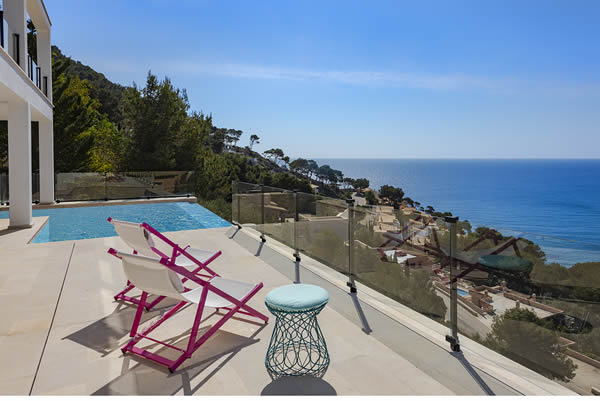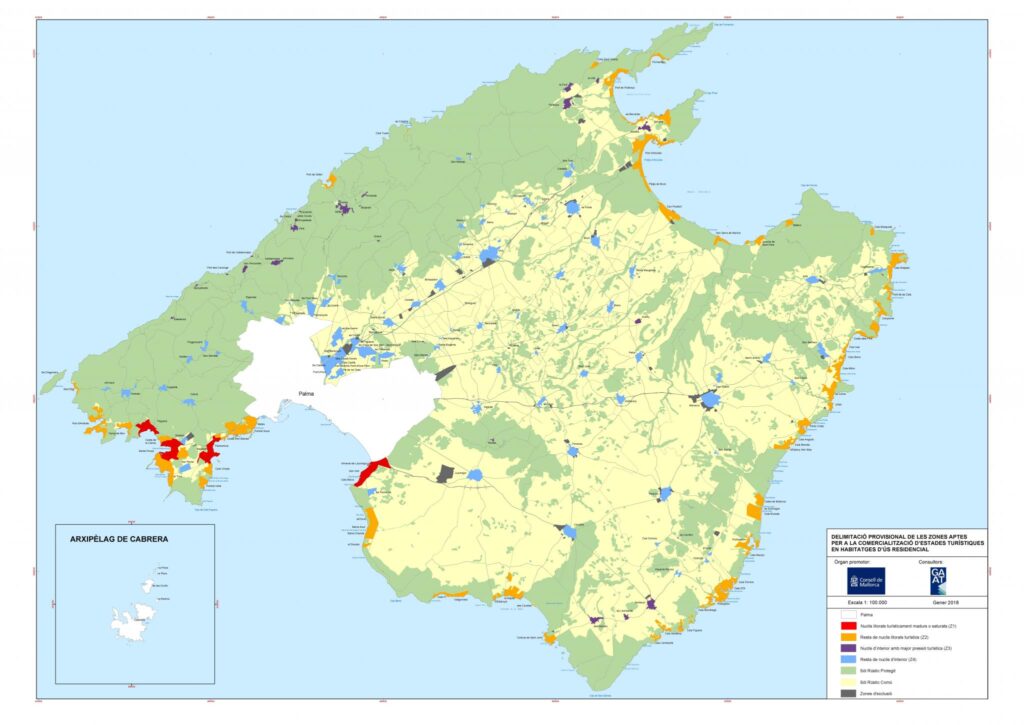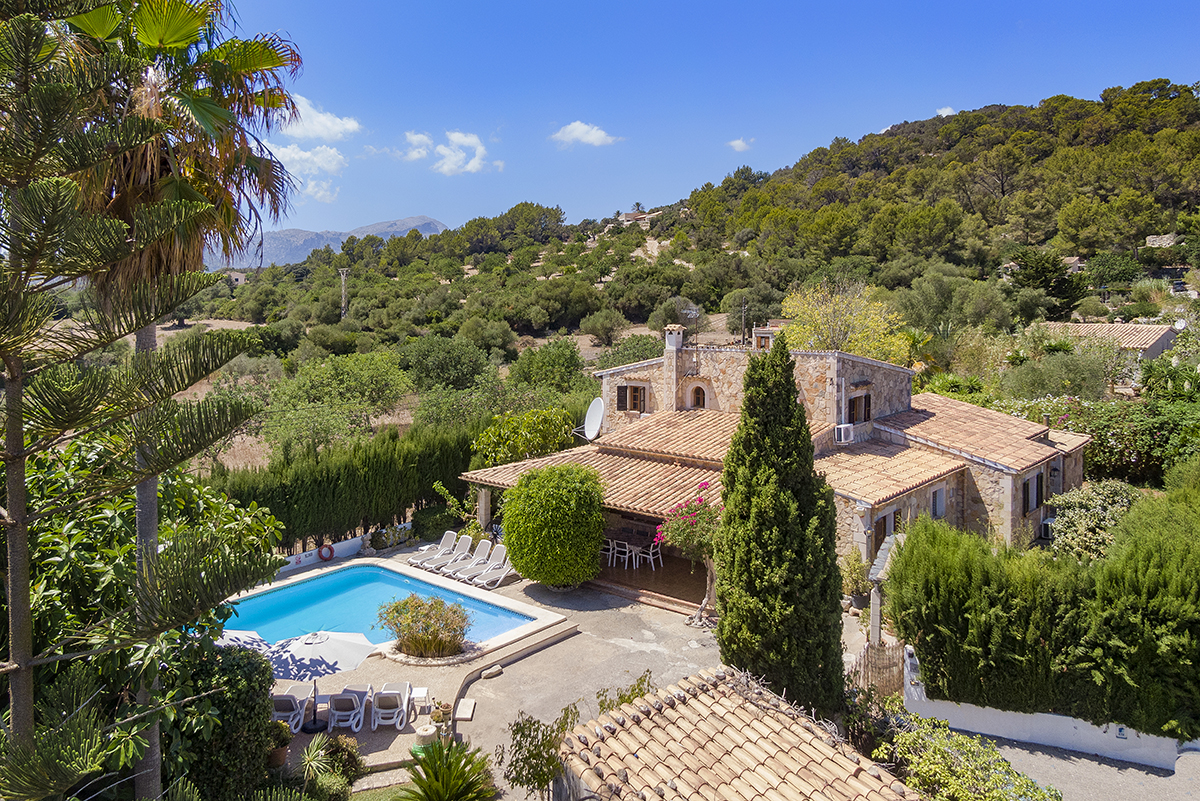The Definitive Guide to Rental Licences in Mallorca in 2021
Tourist Rental License in the Balearics (ETV)
Because holiday property rental laws have changed several times recently, many people are confused about how to rent out their Mallorcan properties.
You will need a tourist rental license, known as Estancia Turísticas en Viviendas (ETV) if you want to rent your property in Mallorca, Ibiza or Formentera out for short-term lets.
If you aren’t able to make use of the property yourself for several months and are considering holiday rental, you might like to know more about the rental process and legalities, so let’s take a closer look.
Do I Need an ETV License?
If you want to rent the entire property for short durations (maximum 1 month) you will need this license. The LAU (long term rentals) law no longer applies in the case of tourist rental. Unless you can prove the rental is not for tourist use, it is assumed to be a holiday rental, meaning by law you will need the ETV.
Different ETV Types
There are 3 different kinds of ETV:
- ETV365: This is for single-family homes where the tourist stays in your villa or townhouse. A single-family home is a property not attached to another (so not an apartment or a property not on its own ‘parcela’ for example). This license does not expire and you can rent out the property all year round.
- ETV365-Pluri: This is for the tourist to stay in a multi-family residence, such as an apartment block or villa on shared parcela. The license lasts for 5 years and is renewable, and the property may be rented out all year round.
- ETV-60: This is when the tourist will stay in the main residence (when the property owner is registered with the Empadronamiento as living in the local property). The license is valid for 5 years and can be renewed. However you can only rent out this kind of property for 60 days per year max.
Can I Rent Out an Apartment?
Yes. Holiday rentals are legally allowed in apartments now, for the first time, but not everywhere.
In the parts of Mallorca considered to be ‘mature tourist areas’ you can only rent out the main residence (where you are registered to live) for no more than 60 days per year. Also, 30 days of the rental period must take place in July or August.
What is Not a Holiday Letting?
If one of these apply, your property does not count as a holiday letting and therefore you won’t need an ETV:
- Renting out your property seasonally as long as you aren’t marketing the house for tourism (via real estate agencies, social media etc)
- Renting out your home for non-tourist use.
- Renting out for longer than 1 month.
- Letting your family or friends stay in the property for free.
- Exchanging holiday rental homes.

What Properties Cannot Be Rented Out
If any of these apply, you cannot rent out your property:
- The property is on protected rustic land.
- The property has been or is currently subject to official protection.
- Local laws restrict or prohibit property rental.
- If you have previously infringed the holiday rental laws and have a sanction imposed on you.
- When the Comunidad (homeowners’ association) does not permit holiday rentals.
- When you are not offering the entire property (you can’t rent individual rooms).
- You can only rent out a maximum of 3 properties.
Also bear in mind you need to ensure the property you want to rent out is in a ‘suitable area’ in accordance with Mallorcan urban planning. You will need to check the zoning and rental requirements with the Plenos de Los Consejos Insulares.
If you previously registered a holiday home that is now in a classified zone, the new zoning will not affect you as long as you registered the property before July 31, 2017.
Where and How to Apply for a License
You need to go to the Consorcio de Mallorca, at the Conselleria de Turismo, in Palma.
Bring a statement of responsibility known as a DRIAT (Declaración Responsible de Inicio de Actividad Turística) and a certificate from the Ayuntamiento certifying your property is zoned somewhere that allows holiday rental. This is the first thing you need to do if you want to rent out your property.
The submission fees vary by municipality. If the property is in Alcudia for example, the price is 70 euros, while in Sóller it would be 50 euros.
You must meet the following criteria to be able to apply for your holiday rental license:
- Have a current Cedula de Habitabilidad (occupancy certificate) from the Competent Insular Administration.
- The property does not provide extra beds.
- The property is in a zone that permits holiday rental activity.
- The property is at least 5 years old (and must have been residential and private during that time).
- The property has to be free from sanctions.
- You have the relevant energy certificate for your property.
- Individual counters for gas and/or electricity.
- Control systems for water consumption.
- Have at least 1 bathroom for every 4 occupants.
- Must comply with accessibility regulations and relevant sustainability.
- Must have civil liability insurance for at least 300,000 euros.
- Must offer 24-hour contact phone number.
If you don’t meet the above requirements when renting out, you might be fined or penalised for illegal property rental.
How to Present the DRIAT
You can either send it electronically via Sede Electrónica > Relación de trámites > Inscripción inicio de actividad turística de estancias turísticas en viviendas, by mail, or in person at any registry office of the Autonomous Administration.
What Documents You Need for Your License
Bring the following to the Consorcio de Mallorca with you:
- NIE, DNI or similar identification.
- Municipality certificate showing the property is zoned somewhere holiday rentals are permitted.
- Certificate that accredits tourist occupancy ‘plazas’ from the Tourism Ministry.
- An empadronamiento certificate naming you as the property’s owner (for a main residence rental for max 60 days each year).
- Documentation showing the community permits holiday rentals (for a multi-family property).
- A modernisation plan you can download from the Dirección General de Turismo website.
- Proof of paying the administrative fee with Model 046 from the Agencia Tributaria website.
What are the Mallorcan Tourist Zones?
The zones considered to be most ‘saturated with tourists’ restrict rental periods and dates. For example, Playa de Palma used to have a complete ban on holiday rentals but now allows villas only to be rented out for 6o days a year and 50% of those must be in July or August.
These are the definitions of each zone:
- Zone 1 (Mature Coastal) – holiday rentals are permitted only in main residence homes where the owner lives in apartments and villas for up to 60 days a year, with at least half those days being in July or August.
- Zone 2 (Other Coastal) – holiday rentals are allowed in apartments and villas year-round for up to 60 days a year.
- Zone 3 (Inland with High Tourist Levels) – holiday rentals are permitted only in main residence homes where the owner lives in apartments and villas for up to 60 days a year, with at least half those days being in July or August.
- Zone 4 (Other Inland) – Areas with low tourist activity. Holiday rentals are allowed in apartments and villas year-round, for up to 60 days a year.
- SRP (Protected Rustic) – Protected zone. No new holiday rental licenses are issued for this zone unless there is an extraordinary circumstance.
- SRC (Other Rustic) – Villas can be rented out year-round in main residence properties for up to 60 days a year with a renewable 5-year license.
- ZE (Exclusion Zone) – Not suitable for holiday rentals because of public safety and/or environmental reasons.

Services You Must Provide to Guests
Every holiday rental property must offer the following services either directly or indirectly:
- House cleaning either before new clients arrive or during their stay.
- Installation maintenance.
- Supply of towels, bed linen and basic household goods.
- At least 1 bathroom for every 4 guests.
Other Useful Tips
- If you are renting a property under the ETV-60, you are permitted to live in part of the property while renting.
- You must offer tourist services such as cleaning, bed linens, towels, and so on.
- You have to send all guest details to the Policía Nacional or Guardia Civil.
- The property license number has to be published in all rental marketing and given to the client at the start of their stay.
- If the building community makes the decision to stop holiday rentals, you must stop renting within the year.
- You have to have an insurance policy covering third-party liability.
- Properties in an area of fire risk prevention must take measures according to Article 50 of Law 8/2012.
Hopefully this guide has clarified the steps you need to take to be able to rent out your property in Mallorca.
Get in touch
You can contact our great members Lawyers to find out more about their services, or anything else you need to know about renting our your property in the Balearic Islands.
Property Lawyers© is a online platform of trusted Lawyers who are specialized in real estate law.

Article Written by ILLESLEX LAWYERS, a prestigious multidisciplinary firm with over 20 years of experience providing legal services .

